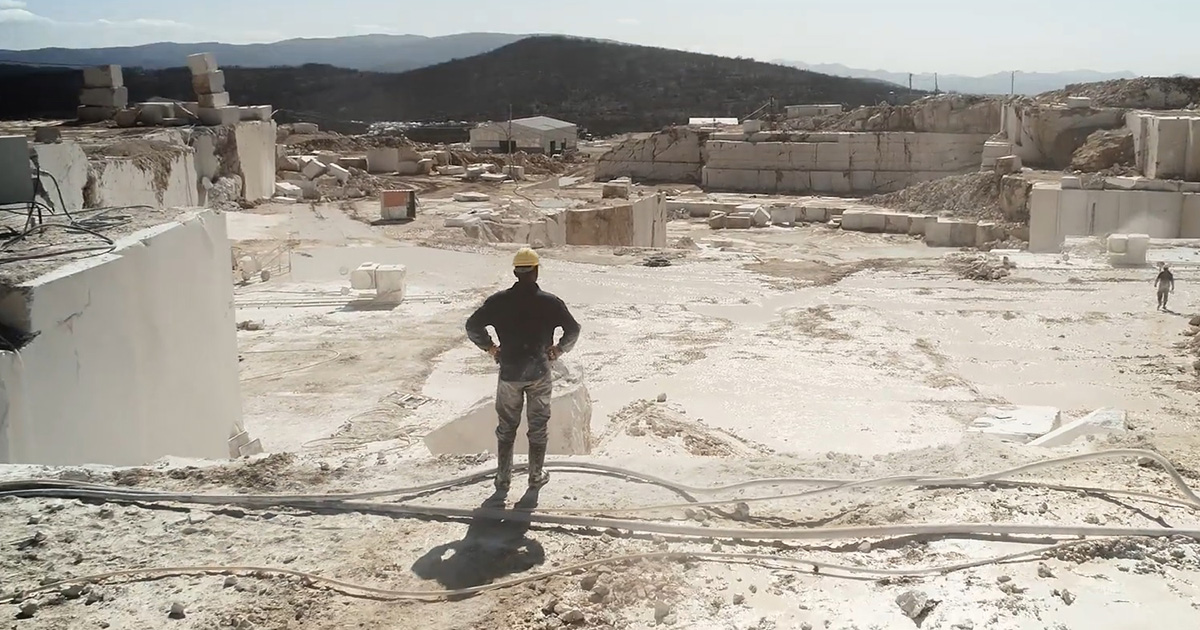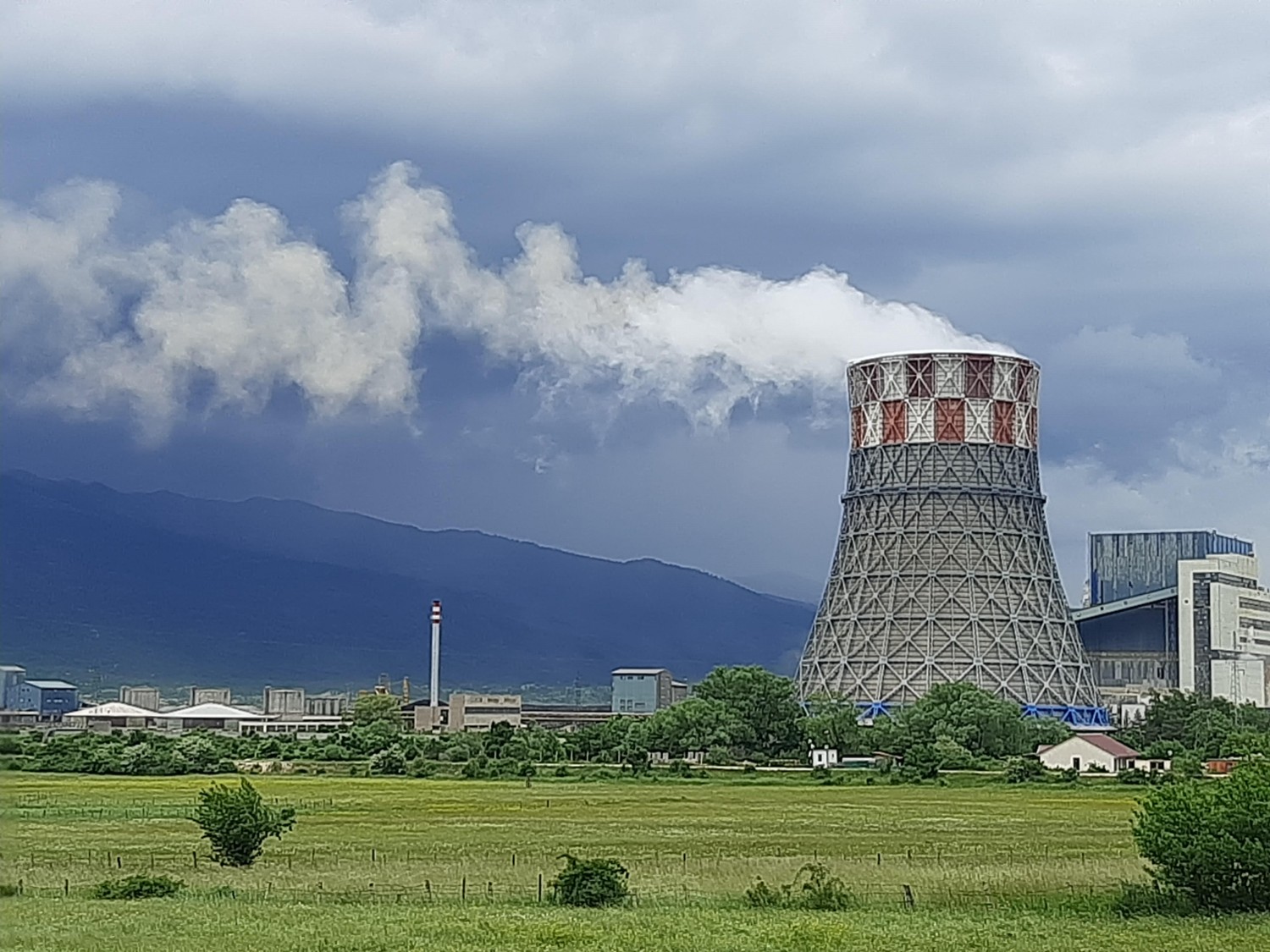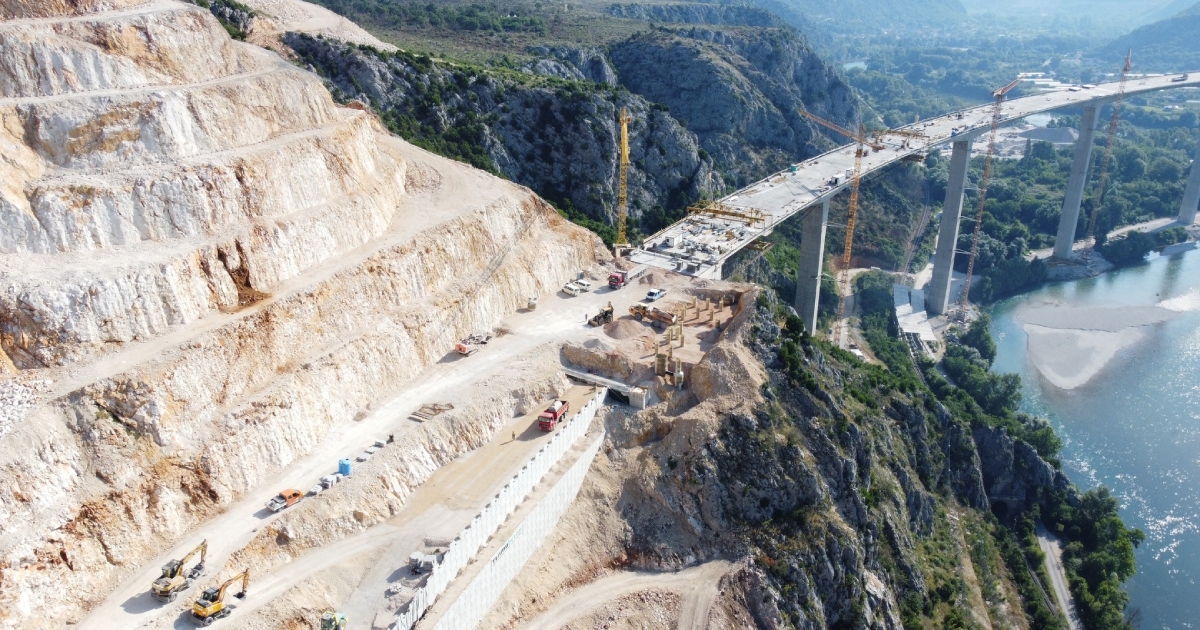Žurnal in English
CHINA IN BOSNIA AND HERZEGOVINA: Economic Interests and Strategic Positioning in the Region?
Despite little concrete evidence of malign Chinese influence, Chinese business dealings in Bosnia and Herzegovina demonstrate how Chinese economic investments are intertwined with politics, and their lack of transparency fuels the already pervasive corruption in the country, according to analyses and research. Chinese companies have become one of the favourite business partners of Milorad Dodik and his associates, with the Chinese currently facing virtually no competition on major construction sites in this entity. On the other hand, authorities accommodate them by approving deadline extensions, contracting additional work, and granting natural resources, even though some Chinese companies have been proven to engage in fraud, placed on blacklists, engaged in bribery, and operated illegally...

Chinese presence in Bosnia and Herzegovina, primarily economic but also cultural and political, serves the overall positioning of this global power in the region, as indicated by numerous analyses of Chinese influence in BiH.
While there is little concrete evidence of malign Chinese influence, the way China aims to position itself is also reflected in the behaviour of its representatives at the UN.
During discussions about the High Representative for BiH, Christian Schmidt, China joined Russia in proposing a resolution to the UN Security Council that would strip the Bonn powers from the High Representative and limit Christian Schmidt's mandate until July 31, 2022. The Security Council rejected this resolution.
Additionally, Chinese officials have never denied the untrue claims by the President of the entity of Republika Srpska in BiH, Milorad Dodik, that China, along with Russia, voted against the appointment of Christian Schmidt. It's worth noting that the UN Security Council did discuss his appointment at the end of June 2021, but no vote was taken.
It's also worth mentioning that several years earlier, when the resolution of the UN Security Council condemning the genocide in Srebrenica was defeated by a Russian "no" vote, China abstained from voting.
In addition to economic influence, cultural impact is a significant aspect of Chinese positioning in Bosnia and Herzegovina. Chinese organizations and cultural institutions collaborate with Bosnian-Herzegovinian organizations and institutions through activities such as Chinese language courses, student exchanges, visits, donations, and more. This form of cooperation is more pronounced in the entity of Republika Srpska in Bosnia and Herzegovina.
Analysts and researchers have warned of the danger of Chinese influence, which, for now, is mainly evident in the economic sphere, as we have discussed before.
Last year, the U.S. Ambassador to Bosnia and Herzegovina, Michael Murphy, also spoke about Chinese influence in BiH.
"I will work on countermeasures to Russia and China that threaten our common interests and the future of Bosnia and Herzegovina", Ambassador Murphy stated, among other things.
However, unlike Russian influence, few officials in Bosnia and Herzegovina, from both entities, will characterize Chinese influence as bad or malign. The reasons for this are, as expected, of an economic nature, as China has become one of the most favoured partners for Bosnian-Herzegovinian authorities at all levels.
PUBLIC FUNDS, SECRET AGREEMENTS
Chinese investments in European Union countries have been decreasing year by year, and stricter rules for reviewing investments by Chinese companies are being introduced, as reported by European media. Meanwhile, in Bosnia and Herzegovina, investments and loans from China have noticeably increased since 2019.
According to certain data, around three billion dollars have been invested from China in Bosnia and Herzegovina – investments worth 610 million dollars from 2019 to 2021, and 2.44 billion dollars in Chinese loans from 2010 to 2022.
It's essential to highlight the controversial nature of Chinese loans because, often, in case of inability to repay, even state infrastructure becomes the property of Chinese creditors. This is accompanied by a lack of transparency as a primary characteristic of a large number of Chinese investments, whether in the form of direct investments or loans.
"Much of what China does, especially in developing countries but also in more developed parts of Europe, is primarily based on China's economic power, using investments and loans through entities connected to China. You see that China gains a lot of influence over countries, not necessarily to trap them in debt, as is often talked about, but simply through non-transparent agreements, with conditions not accessible to the public, and corruption comes with it", said David Shullman, one of the American experts on East Asia, in an earlier statement to AJB.
However, Chinese loans come with lower borrowing costs and easier terms, but, again, their lack of transparency opens the door to corruption, for which there is fertile ground in Bosnia and Herzegovina. Despite the risks, Chinese loans would not be unwelcome to the President of Republika Srpska, Milorad Dodik, who, as reported by Fokus, conducted the largest political offensive a few months ago to secure vital Chinese loans, which should help him pull this entity out of financial problems. A series of meetings with Chinese companies and creditors were held, but according to the media, these meetings were not very fruitful.
While, for now, Chinese interest in all of this is primarily economic, there are opinions that their economic investments are indeed intertwined with politics. Numerous examples have shown that the Chinese, when signing contracts, have specific conditions. Similar to loans, they often request that multimillion-dollar contracts not be disclosed to the public. The non-disclosure of details in concluded contracts often benefits Bosnian-Herzegovinian politicians, institutions, and companies. Analyses have shown that precisely because of the secrecy, Chinese investments encourage the already widespread corruption in the region, including Bosnia and Herzegovina. In addition to the lack of transparency, it is worth noting that Chinese projects in Bosnia and Herzegovina are characterized by controversies, suspicions of corruption and favouritism, delays, activists' objections, and failed projects.
CHINESE COMPANIES' FAVORITE BUSINESS PARTNERS OF RS AUTHORITIES
Chinese companies have become one of the favourite business partners of Milorad Dodik and his associates. According to calculations by colleagues from CAPITAL, Chinese companies are currently engaged in energy and infrastructure projects in Republika Srpska (RS) worth more than 1.6 billion convertible marks. At this moment, they virtually have no competition on major state construction sites in this entity, but this is expected to be just the beginning as their plans are much more extensive.
Chinese companies are involved in several projects in RS – constructing hydroelectric power plants Dabar and Bistrica, highways Banja Luka – Prijedor and Brčko – Bijelina, and a hospital in Doboj. These projects are worth over a billion convertible marks, and new projects are in preparation. One of the upcoming projects is the construction of the Buk Bijela hydroelectric power plant, expected to be the largest in this entity. One of the three Chinese companies competing for this 250 million euro project will undertake its construction.
The lowest bid, worth 248 million euros, was submitted by Dongfang Electric Corporation, while the bid from Power China amounts to 263 million euros, and Energy China's offer is slightly higher at 264 million euros.
Entity authorities are accommodating Chinese companies, as demonstrated by the hospital construction project in Doboj. The Ministry of Health and Social Protection of RS awarded the contract to a consortium of Chinese firms, including Shanxi Construction Investment Group and China Sinopharm International Corporation. The contract was signed in March 2019, with a construction and equipping deadline of 36 months under a turnkey model. Due to the pandemic and later the Russian aggression in Ukraine, authorities in RS extended the hospital completion deadline to September of this year. Subsequently, with a new decision by the RS Government, it was further extended until the end of March next year.
Additionally, the construction of an intensive care unit and numerous other works not covered by the initial contract were later negotiated with the Chinese. This means that the construction of the hospital, which had a contracted price of around 103.5 million KM and had already been the subject of numerous criticisms, will now exceed 120 million KM. It's a sort of compensation because, according to information from CAPITAL, the Chinese partner for the hospital construction requested additional funds, justifying it by inflation.
The allocation of natural resources to foreign companies is evident in the quarry in Berkovići. As reported by Fokus, the Chinese control the quarry in Berkovići, while their total investment in Bosnia and Herzegovina over five years is only about nine million convertible marks.

Photo: Screenshot / kremit.ba
Although the company "Privredno društvo Kremnice" received a concession from the Government of Republika Srpska for the exploitation of architectural-construction stone in the municipality of Berkovići in 2012 as a company owned by Bosnian citizens, by 2014, the majority owner, Chinese partner Han Chenglian, and the company Hongkong Panjing Mining Shares Limited entered the ownership structure of the company. At that time, the concession for the stone exploitation field, covering an area of 14.8 hectares, passed into the hands of the Chinese.
The Chinese owners export almost all of the stone, i.e., stone blocks, to China for the local market. This practice is expected to continue for the next 30 years, the duration of the concession. This amounts to an export of around 5,400 m3 of blocks annually or 600 containers. There are also many projects that have never been realized. The best example is the never-built Gacko 2 thermal power plant, which was supposed to replace the existing power plant. As reported by Inforadar, in December 2017, a solemn signing ceremony for the General Agreement on the Gacko 2 thermal power plant project was held in Banja Luka, concluded by the RS Government with representatives of China Machinery Engineering Corporation and Emerging Markets Power Fund.
In July 2018, an agreement was reached with representatives of the Chinese Poly Group to establish a joint venture for the construction of a new power plant in Gacko. The estimated investment value is over a billion convertible marks. Since nothing concrete has been done regarding the construction of the thermal power plant, many consider this project a phantom, even though there has been no official abandonment of the construction. Recently, there was information that Chinese companies are again interested in building the thermal power plant. Supporting this claim is the fact that Elektroprivreda RS recently established the company "Termoelektrana Gacko, razvoj i investicija", tasked with preparing project documentation and securing environmental permits.

As expected, environmental activists express discontent, emphasizing that the entire project makes no sense, especially considering the commitments Bosnia and Herzegovina has undertaken for the gradual shutdown of thermal power plants.
Environmental activists also protested against the announced construction of the Ulog hydroelectric power plant. In this case, too, the Government of Republika Srpska has repeatedly granted extensions for the construction deadlines, and amendments to the original concession agreement have been made, extending the concession period from 30 to 50 years. In this instance, the concession for a 30-year construction was granted to the company EFT, owned by Vuk Hamović, the largest electricity trader in the region. The selected contractor was the Chinese Sinohydro, known for bribery of officials and illegal business practices, which led this company to be blacklisted by the World Bank, as reported by Inforadar.
One project that some believe will also never be realized is the construction of a tunnel through Trebević, connecting East Sarajevo and Pale. The mayor of East Sarajevo, Ljubiša Ćosić, announced that the project is expected to cost around 200 million euros. Some preliminary studies have already been conducted, and the entire project started non-transparently. As highlighted in the Inforadar report, the Chinese company Sinohydro has been favoured by the domestic partner, even though it is well-known that Sinohydro has a poor reputation worldwide. The African Development Bank (AfDB) has blacklisted Sinohydro and prohibited its participation in all projects they finance.
Chinese companies are not unfamiliar with fraudulent practices. Official documentation from Autoceste FBiH revealed that, once again, the company Sinohydro Corporation Limited, along with Powerchina Roadbridge Group and China Gezhouba Group, engaged in deception during the construction of certain sections of the highway in the Federation of Bosnia and Herzegovina. All these companies, as reported by Fokus, are known for corruption scandals, fraud, and failure to fulfil contracts on a global level.
Two Chinese companies, Sinohydro Corporation Limited and Powerchina Roadbridge Group, were involved in the construction of the Počitelj Bridge on the Počitelj-Zvirovići section. These companies violated the contract by not performing the works on the bridge's span structure themselves; instead, it was done by a subcontractor, the Hering company from Široki Brijeg. This deviation was not allowed under any circumstances, leading to their disqualification for a period of two years.

Photo: Autoceste FBiH
Regarding China Gezhouba Group, the company was disqualified for submitting false documentation during the tender application for the construction of the Medakovo-Ozimice section and the Prenj tunnel.
In the context of Elektroprivreda BiH's business dealings with China, a prominent project is the (non)construction of Block 7 in the Tuzla Thermal Power Plant. The project has been on hold for 17 years, and during that period, only preparatory work has been carried out at the planned location for Block 7. This investment has cost the citizens 233 million KM so far, and the new Government of the Federation of Bosnia and Herzegovina and the relevant ministry have no answer to whether this project will continue.
Transparency is also an issue when it comes to the works worth 29.7 million KM on the revitalization of Block 6 in the Tuzla Thermal Power Plant. These works were entrusted to a Bosnian-Chinese consortium consisting of ITC from Zenica, and the Chinese companies Donfang Electric International Corporation and Dongfang Boiler. The portal Tačno.net reports that Elektroprivreda BiH consistently refuses to provide answers to questions about why the works are delayed. This raises questions about how the delay in implementing this project will affect the overall business of this state-owned company, which, according to semi-annual reports, is recording a loss of almost 25 million KM.
(zurnal.info)









